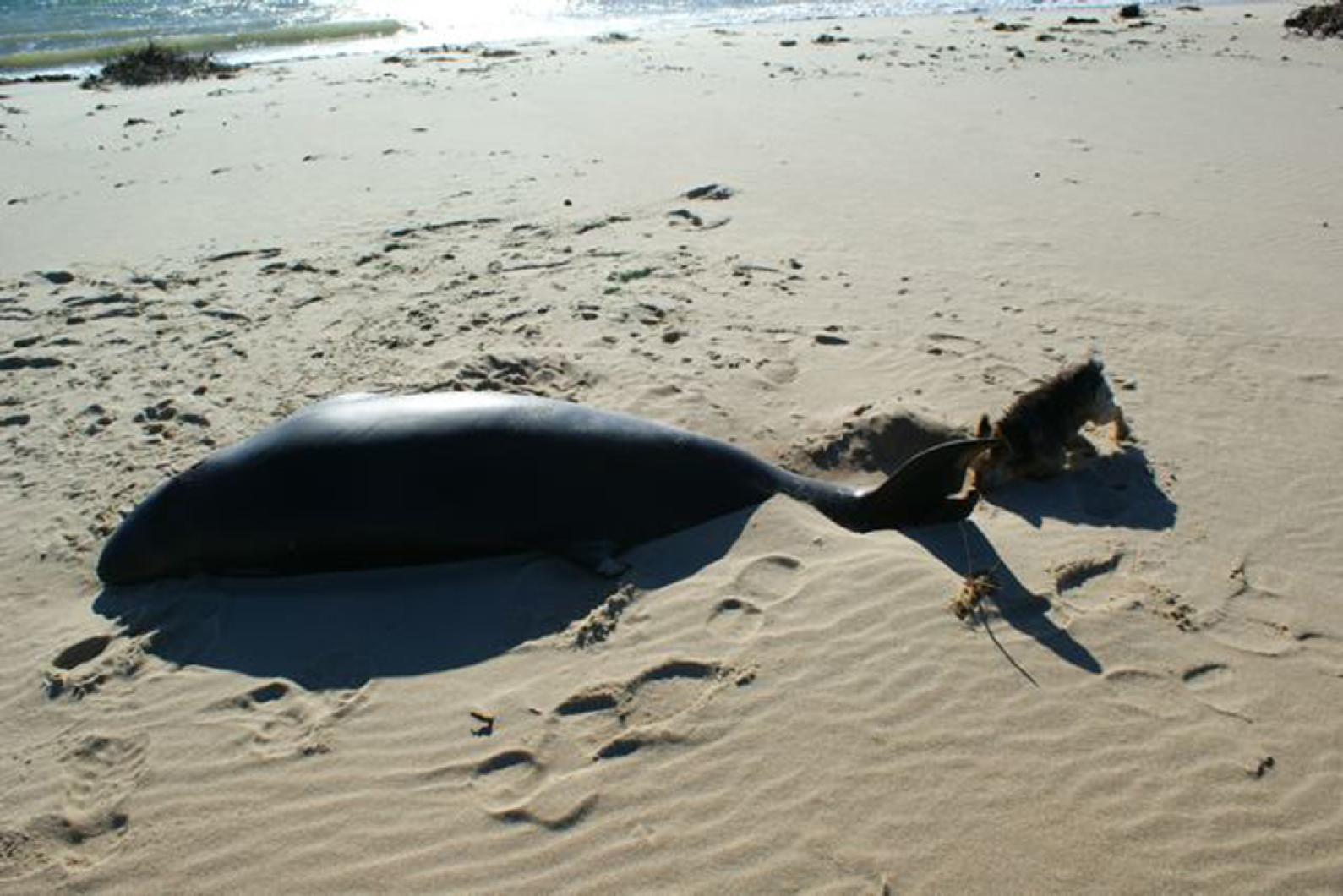Last Friday Skip Bettencourt was strolling the Chappaquiddick side of the Norton Point breach with his wife, his dog and two friends when he stumbled across six feet of bloodied blubber. With the tooth-studded lower jaw of a sperm whale and the pointed snout of a shark, the animal cut an outlandish profile.
“We had no idea what it was,” he said. “It looked like it hadn’t been there that long, though.”
When Mr. Bettencourt contacted the New England Aquarium stranding hotline and forwarded photographs of the creature, biologist Ulrika Malone quickly identified the animal as either a pygmy or dwarf sperm whale.
New England Aquarium spokesman Tony LaCasse said this week that pygmy sperm whale strandings are rare. While little is known about the unprepossessing animal, it is ordinarily found patrolling the edge of the continental shelf, diving up to 1,000 feet for squid and the occasional crustacean. It is also armed with the ability to discharge an inky fluid from its intestines to distract predators.
“It’s really unusual,” Mr. LaCasse said. “This is probably one of least studied cetaceans.”
Although strandings of the species are rare, especially here in the northernmost extent of their habitat, Mr. LaCasse says that there has been a spate of them in recent years, with two last year on the Vineyard, one on Nantucket and an unusual stranding in Winthrop, just north of Logan Airport. That animal had been injured by marine gear and likely wandered far off course. As for the Vineyard carcass, which showed no signs of trauma — shark, ship strike or otherwise — Mr. LaCasse said necropsies of the animals often reveal plastic bags obstructing their gastrointestinal tract.
Because of the animal’s remoteness it will be left to decompose on the beach, or perhaps more likely it will be swept back out to sea.
“It doesn’t take long for it to get broken down to bone matter,” Mr. LaCasse said.
Besides the sporadic whale stranding, the aquarium is also engaged in its annual fall effort to rescue hypothermic Kemp’s Ridley sea turtles stranded on Cape Cod. The turtles are commonly caught in swirling ocean currents and become disoriented on their migration south. Mr. LaCasse said there have been 25 sea turtle strandings this year, and that the aquarium expects up to 150 in the coming weeks.
“We’re up to our elbows in stranded sea turtles,” he said.







Comments
Comment policy »